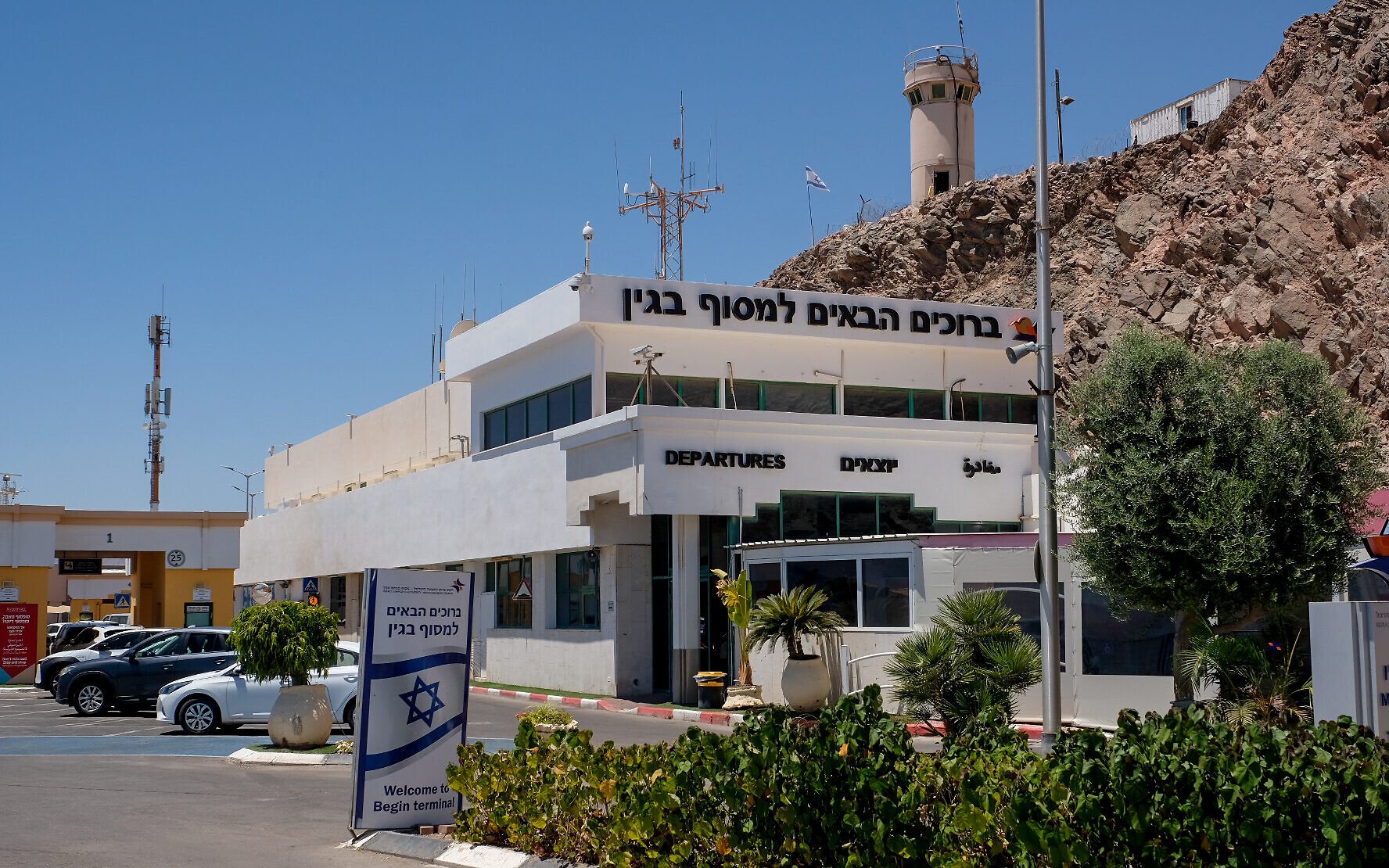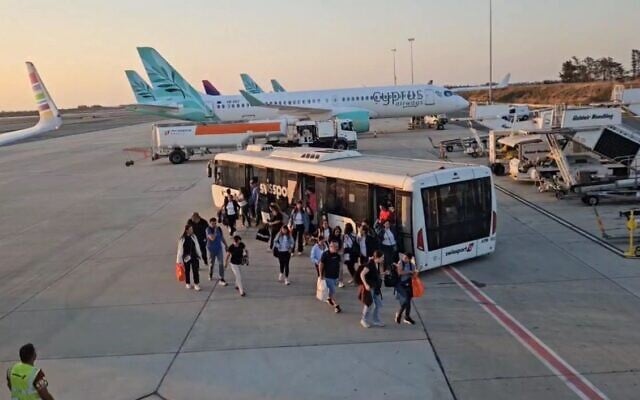



Tens of thousands of Israelis have made their way home via land border crossings with Egypt and Jordan, mostly ignoring travel warnings by Israeli authorities and frustrated with the government’s sluggish repatriation mission.
As Israel’s airspace was closed in the wake of the attack on Iran on June 13, the National Security Council ordered more than 100,000 Israelis stranded abroad scrambling for a way to get back home not to try to reach Israel by land through the border crossings from Jordan or Egypt’s Sinai Peninsula. Both countries are under Level 4 warnings, which means, according to the NSC website, that “travel to this destination is prohibited.”
Nonetheless, between June 13 and June 21, around 39,000 Israelis entered the country via land border crossings with Egypt and Jordan, which have remained open since the conflict with Iran started, according to data by the Population and Immigration Authority. That’s out of a total of more than 71,608 Israelis who have returned home during the eight-day period.
Almost 20,000 stranded Israelis have traveled back home via the Taba land border crossing — also known as the Menachem Begin Crossing, which is reachable from the international airport of the Egyptian coastal resort of Sharm el-Sheikh. The Taba crossing, which connects Egypt’s Sinai Peninsula and Eilat, Israel’s southernmost tip, operates 24 hours a day, seven days a week, and is open for holders of Israeli and foreign passports.
Since June 13, more than 12,000 Israelis have headed to the airport in Aqaba in Jordan to enter the country via the Yitzhak Rabin border crossing close to the resort city of Eilat on the Israeli side. Located a short drive away from Aqaba’s main international airport, the land border crossing is accessible to Israeli residents and foreign tourists crossing and is open seven days a week.
In response to the high demand, Cypriot airline TUS Airways, which is Israeli-owned, last week started to operate flights from Larnaca, Cyprus and Athens, Greece to Aqaba to help Israeli passengers continue on the land route to Israel.
Another 6,200 Israelis crossed the Jordan River land border to enter the country near the northern city of Beit She’an on the Israeli side.
To avert overcrowding and long stays at the border crossings, the Transportation Ministry said it increased security and bus transportation from the land crossings to major cities across the country.
Via the sea, about 6,499 Israelis traveled back on yachts and cruises, mostly from the shores of Cyprus to the Israeli ports of Ashdod and Haifa over the eight-day period.
“Many Israelis were initially concerned about returning via land border crossings because of the travel warning, but many have taken these routes because they did not have much of a choice, some left their children in Israel, and there are also financial constraints and the high costs of hotel stays abroad,” Revital Ben Natan, CEO of Ofakim Travel and Tours, told The Times of Israel.
Amid continued barrages of missiles from Iran directed at Israel, it took the government until Wednesday before approving a limited operation of repatriation flights run by Israeli airlines to bring home stranded citizens from nearby destinations in Cyprus and Greece, major European cities, and most recently New York and Bangkok — but only during daylight hours.
The government has cautioned that it will take weeks before all Israelis stranded abroad can fly home, especially if the country’s airspace remains partially closed and foreign airlines continue to stay away for longer. According to the latest figures, 25,333 Israelis flew home on flights in recent days.
“Some Israelis stranded in Budapest traveled to Austria and then Athens to get closer to Israel and still can’t get on a plane back home because all the flights are full,” said Ben Natan. “We work with many large corporate clients from defense, energy and global companies and are helping them to bring their employees home by getting them to Larnaca and Athens from Japan, New York and Bangkok as there are hardly options for direct flights.”
During previous wars and rounds of conflicts, nearby destinations Larnaca and Athens have served as hubs to bring stranded Israelis back home. The prices for one-way tickets, from Larnaca and Athens, which are scarce, can range from $400 to $700, according to Ben Natan.
Ben Natan said Ofakim recently signed a cooperation agreement with Air Haifa, for the operation of five flights to fly its customers, mostly corporate clients, from Larnaca to Israel.


